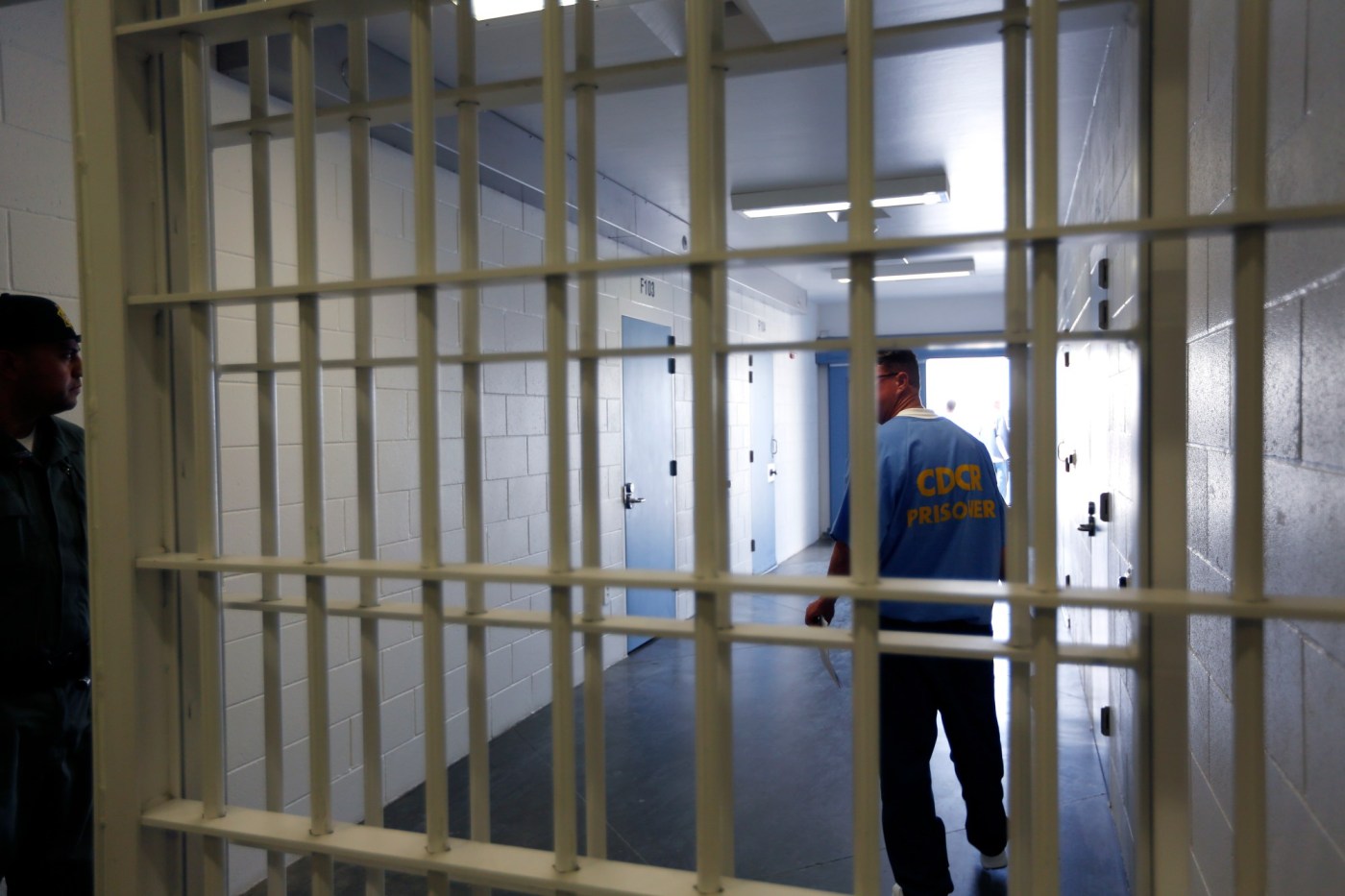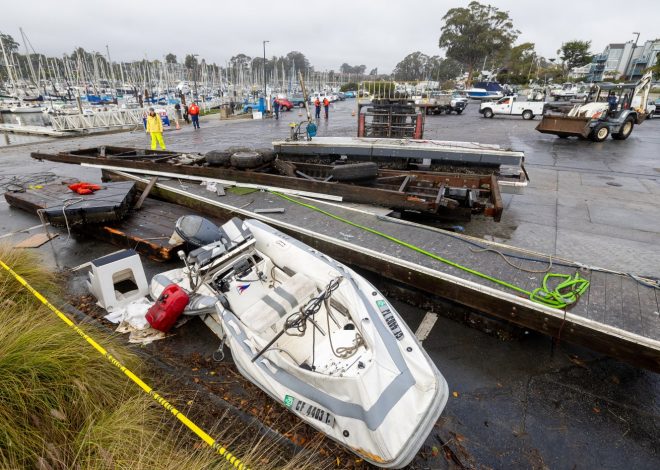
Your guide to Proposition 36, which would toughen some theft and drug sentences
Proposition 36 is called The Homelessness, Drug Addiction, and Theft Reduction Act. It is among the 10 statewide ballot measures that California voters will weigh in on this fall.
What would it do?
Related Articles
Skelton: California voters are fed up with crime and, apparently, Democratic response
Public health, wellbeing on Berkeley’s ballot this November
Prop. 33: Will California voters allow cities to expand rent control?
PRO/CON: Would Prop 36 help California’s theft and drug problems or make them worse?
Mahan: Let California judges require drug treatment that ends suffering on streets
Prop. 36 would toughen sentences for petty theft and some drug possession for repeat offenders. It also establishes mandated treatment for some felony drug cases and creates a formal warning for people convicted of selling hard drugs that if they deal again and someone dies as a result, they can face a murder charge.
The measure has several provisions, but key among them would address some of the changes Proposition 47 made a decade ago in petty theft and drug possession cases. Prop. 47, passed by voters in 2014, reduced some drug possession charges to a misdemeanor. For misdemeanor petty theft, it raised the maximum value of stolen goods from $400 to $950 before it is considered a felony.
Under Prop. 36, if a person with two prior petty theft convictions is charged with a third petty theft, that third case can be charged as a felony, no matter the value of the property stolen. Prosecutors will have discretion on whether to bring the case as a felony, and judges will have discretion on whether to allow the felony charge to stand or to be reduced.
It would also allow prosecutors to add up the total value of items stolen in multiple, unrelated thefts and charge it as a felony if the combined total is more than $950.
Possession of a small amount of “hard” drugs is currently a misdemeanor under Prop. 47. The changes proposed in Prop. 36 would allow a person’s third drug case — including possession of fentanyl, heroin, methamphetamine and cocaine — to be charged as a felony.
That third drug case, if charged as a felony, would come with a new option: mandated treatment. Third-time offenders could avoid jail and have the felony expunged if they complete a drug or mental health treatment program. And if that person gets a fourth conviction for possessing hard drugs, the judge could opt to send them to prison.
The measure would add nonprescription fentanyl to a list of “hard” drugs such as cocaine and heroin, and increase penalties for trafficking hard drugs.
Who supports it, and why?
Supporters say the measure will address an increase in retail theft, get more people with drug addictions into treatment, and hold drug dealers and repeat theft offenders accountable with stiffer penalties.
In the official voter information guide, supporters argue the measure “is a balanced approach that corrects loopholes in state law that criminals exploit to avoid accountability for fentanyl trafficking and repeat retail theft.”
They argue that the unintended consequences of criminal justice reforms “include an epidemic of drug use, trafficking, and repeat retail theft because the people committing these crimes don’t face any serious consequences.”
Backers of Prop. 36 include the California Police Chiefs Association, California District Attorneys Association, the California Retailers Association and the California Republican Party. Supporters also include several chambers of commerce across the state, several police unions, district attorneys and mayors, including San Diego Mayor Todd Gloria and District Attorney Summer Stephan.
Walmart is the top contributor, donating $2.5 million. Target and Home Depot follow, with $1 million contributions each, the Secretary of State website shows.
Who opposes it, and why?
Opponents argue that Prop. 36 is extreme overreach, a return to the 1980s war on drugs and will result in over-incarceration. They argue that there are already laws on the books providing serious penalties for drug trafficking and organized crime. They say the proposition will put more people in prison and pay for it with money earmarked for rehabilitation and mental health programming.
“This is a one-size-fits-all prison-first approach. It will lock up people who are not a danger, slash desperately needed money from proven crime prevention and treatment programs, and cost taxpayers hundreds of millions more on prisons,” opponents argued in the official voter information guide.
Related Articles
Amid surging gun violence, Antioch mayor vows to spend $100,000 to bring in outside police help
What is ‘chronic homelessness?’ 2 California lawmakers want to redefine it
Gov. Newsom signs new laws cracking down on oil industry in California
If Kamala Harris tried to block Kimberly Guilfoyle from job, she was ‘prescient,’ ex-colleague says
Gov. Newsom signs bills to expand restrictions on who can own guns in California
They also wrote: “We must address persistent problems like theft and fentanyl, but we must use solutions that work and are targeted at the actual issue, instead of the scattershot failed solutions of the past.”
Opponents include Gov. Gavin Newsom and several Democratic state lawmakers, American Civil Liberties Union groups around the state including the San Diego and Imperial counties chapter, criminal justice reform groups, a handful of district attorneys and retired former San Diego police Chief William Lansdowne.
Top donors include nearly $130,000 from the ACLU of Northern California Issues Committee and $250,000 from SEIU California State Council for Working People, according to the Secretary of State website.
What’s the financial cost?
The Legislative Analyst’s estimate indicates the measure will cost the state “several tens of millions to the low hundreds of millions of dollars” each year. The main reason: an increase in the prison population. The analysis asserts the prison population, currently around 90,000, could increase “around a few thousand people.”
The analysis, included in the state’s voter information guide, estimates local jurisdictions will probably spend tens of millions a year toward county jails and probation supervision costs as well as the workload in the courts for mandated mental health and drug treatment. The population in county jails across the state, around 250,000 people now, would likely increase, possibly by “a few thousand people.”
The analysis notes that the effects depend on “uncertain factors,” including decisions local prosecutors make.
The analysis noted that Prop. 47 money saved from punishment reductions were to be spent on mental health and drug treatment, school truancy and dropout prevention, and victim services — last year, that was $95 million. By rolling back parts of Prop. 47, Prop. 36 would reduce those savings, likely in the low tens of millions of dollars.


